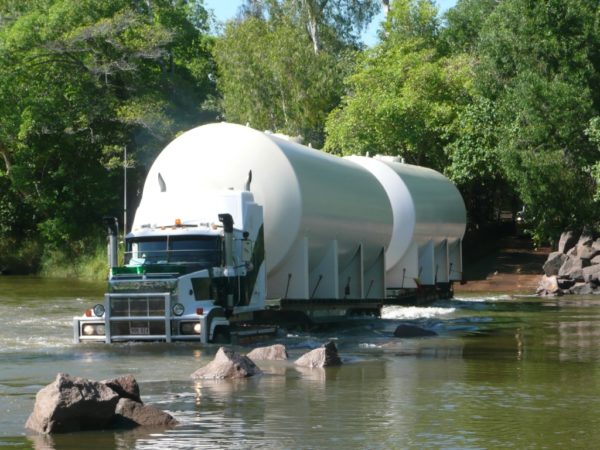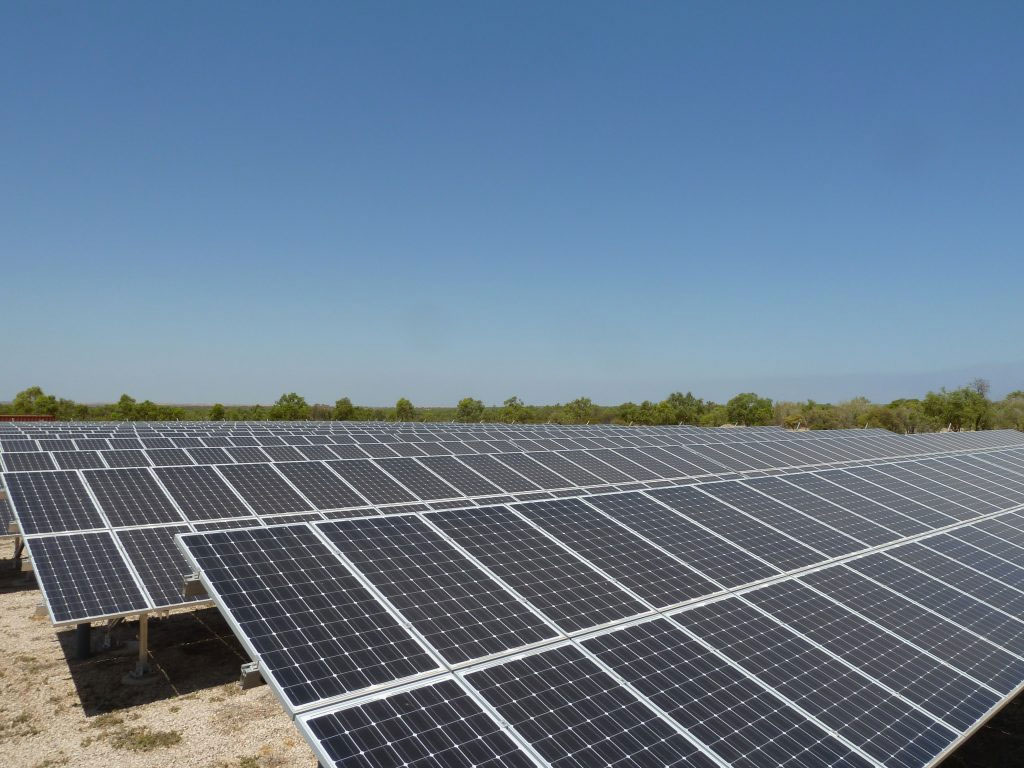The indigenous community of Titjikala, home to Arrernte (traditional owners), Luritja and Pitjantjatjara people, sits about 100km southeast of Alice Springs, straddling the Hugh River on the reddening edge of the Simpson Desert.
Titjikala is also the birthplace of figurative artist Sally M. Nangala Mulda, an artist whose big bright brushstrokes insist upon her individual style. Among her influences Mulda often paints scenes depicting the relationship between her communities and the police, particularly since the 2007 NT Intervention. At a time when the relationship between the police and indigenous communities is at the forefront once again, Mulda is certainly an artist to look at.
As part of ARENA and the Northern Territory (NT) government’s $59 million Solar Energy Transformation Program (SETuP) Titjikala saw the installation of a 400kW solar PV array. Now that array is being supported by a new 970kWh battery energy storage system (BESS).
The solar energy storage system is set to provide a wide range of benefits to Titjikala. For one, the system will save approximately 156,000L of diesel annually. Less pollution, less noise from diesel engines, and excess solar stored for the nighttime, it will be a homegrown relief.

Image: ARENA
The project is set to cost approximately $950,000, with the investment expected to be repaid from savings within five years. “We are not just investing in our major centres,” said Minister for Renewables, Energy & Essential Services, Dale Wakefield, “but we are also investing in our remote communities and ensuring that we are delivering cheaper and cleaner power for ALL Territorians.”
Wakefield cites programs like SETuP as part of “significant progress towards our target of 50% by 2030 with renewables projected to reach 16% by the end of 2020. Only a few years ago, the NT Government’s target of 50% renewable energy by 2030 might’ve seemed about as farfetched a project as a ski-shop in Darwin. But in the last year alone the NT has begun to take its extraordinary potential seriously. The sunburnt state clearly realised that it had no excuse for having the lowest renewable energy production in the nation. Now, however, not only is the 2030 target beginning to look achievable, but the NT is also firmly on its way to being a global renewable energy exporter.
The BESS project is set to be completed in early 2021.
This content is protected by copyright and may not be reused. If you want to cooperate with us and would like to reuse some of our content, please contact: editors@pv-magazine.com.









1 comment
By submitting this form you agree to pv magazine using your data for the purposes of publishing your comment.
Your personal data will only be disclosed or otherwise transmitted to third parties for the purposes of spam filtering or if this is necessary for technical maintenance of the website. Any other transfer to third parties will not take place unless this is justified on the basis of applicable data protection regulations or if pv magazine is legally obliged to do so.
You may revoke this consent at any time with effect for the future, in which case your personal data will be deleted immediately. Otherwise, your data will be deleted if pv magazine has processed your request or the purpose of data storage is fulfilled.
Further information on data privacy can be found in our Data Protection Policy.